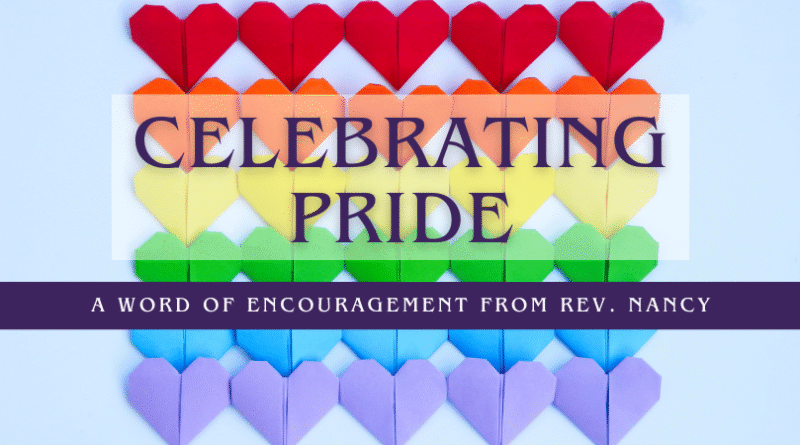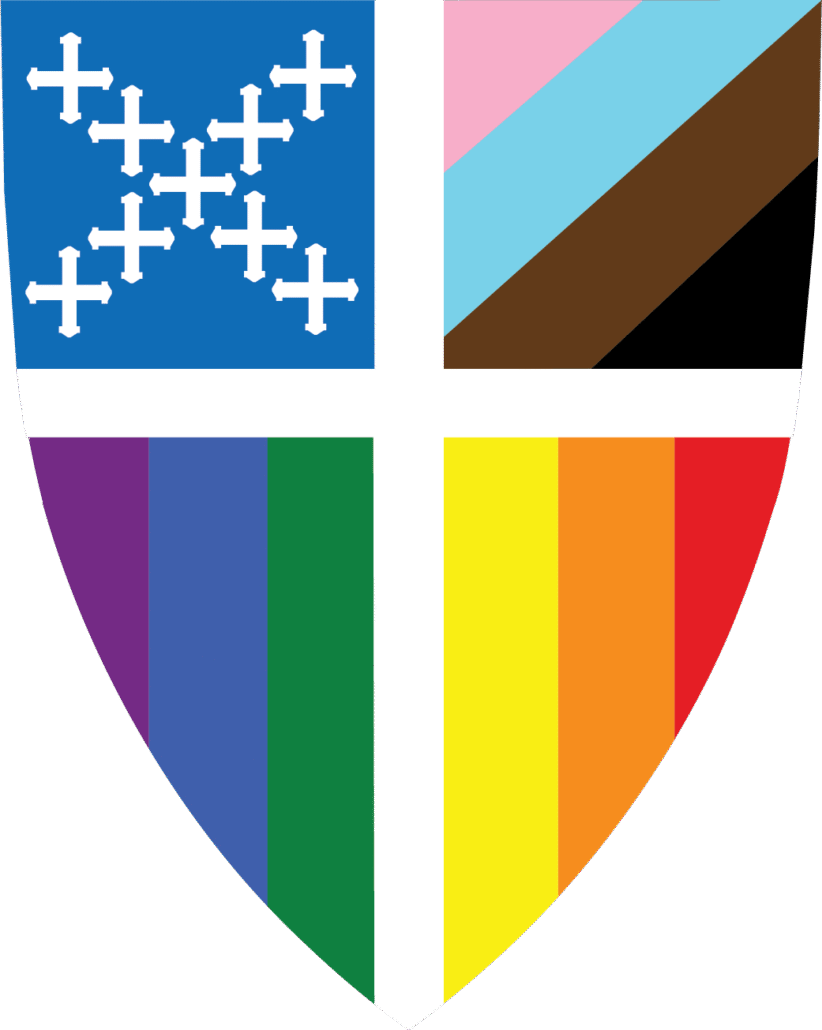Celebrating Pride
Recently, I was asked, “Why is the Episcopal Church celebrating Pride Month? Isn’t that a secular observance? Isn’t pride a sin?”
Well, it is true that Pride Month is a secular observance, as are Memorial Day, Mother’s Day, and Father’s Day, which are often mentioned in church. Independence Day is a national celebration, but became part of our liturgical calendar again (after a 150-year hiatus) in 1928. As Episcopalians, observing Pride Month isn’t just an act of cultural solidarity, it is a reflection of our baptismal covenant “to respect the dignity of every human being” and “to seek and serve Christ in all persons.”
For too many LGBTQIA+ people, this world can be a scary and even dangerous place. Sadly, churches and Christians have often contributed to, rather than challenged, this. Many LGBTQIA+ individuals carry wounds from faith communities that have rejected or condemned them. It constantly astounds me that Jesus, the one who loved us so much that he was willing to endure crucifixion, is cited as justification for hate and exclusion.
But what about that word “pride?”
Yes, pride traditionally is one of the seven deadly sins. Some even list it as the root of all the others, as a sense of superiority, vanity, and spiritual arrogance can lead to rejection of God’s grace, our only source of salvation. Combating pride involves cultivating humility, which reminds us that we are not the center of the universe and that all we have depends on God.
But pride has other meanings:
– a deep pleasure or satisfaction derived from achievement (proud parent);
– contentment (proud to call North Carolina home);
– a consciousness of one’s own dignity (Irish, and proud of it).
This last might be the closest to what is intended by Pride Month – remember, St. Patrick’s Day celebrations in this country grew out of the tremendous discrimination Irish immigrants faced in employment and housing. While focused on the LGBTQIA+ community, at its core, Pride Month celebrates the intrinsic worth of everyperson.
Episcopal Christians are deeply engaged in the life of this world and committed to dignity, justice, and hospitality for all God’s people. In 1976, the Episcopal Church passed its first resolution affirming that“homosexual persons are children of God who have a full and equal claim with all other persons upon the love, acceptance, and pastoral concern and care of the Church,” and “are entitled to equal protection of the laws with all other citizens.” This was one of the earliest statements by a mainline Christian denomination. The founding of Episcopal Church Caring Response to AIDS (ECCRA) in 1986 marked the first time a major denomination took a stand supporting those with HIV/AIDS at a time when this disease was ravaging the gay community.
Closer to home, All Saints’ was privileged to be an early host of a section of the Names Project (or as it is more popularly known, the AIDs Quilt) and long-term supporter of RAIN (Regional AIDS Interfaith Network). Last year, we helped organize and sponsor a booth at the Cannon Baller’s Pride Night. This year, we will have a presence at the Salisbury Pride Festival, June 28th (contact Rhonda Kovar for more details). Showing up at Pride events is one way of publicly living out our theology of God’s inclusive love.
This is not new work for us as a church, and it has been difficult and even costly at times. We should expect nothing less as followers of Jesus, who was crucified and raised for us. We are stronger for the diversity of our faith community. At All Saints’ we proudly declare: All Are Welcome. All means All.
+Nancy
Episcopal Pride Shield
The upper-left blue corner retains The Episcopal Church’s shield logo. The other quadrants incorporate elements of the traditional Pride flag along with brown, pink, and light-blue and black diagonal lines which representing communities of color, the transgender community, and the many thousands harmed by anti-LGBTQ+ policy – from those who lost their lives in the AIDS crisis of the 1980s and ‘90s, to those still disproportionately impacted today.


